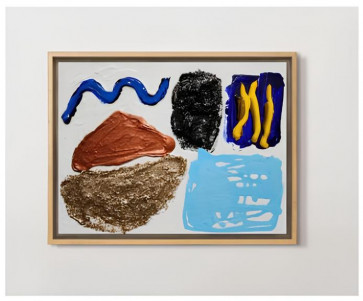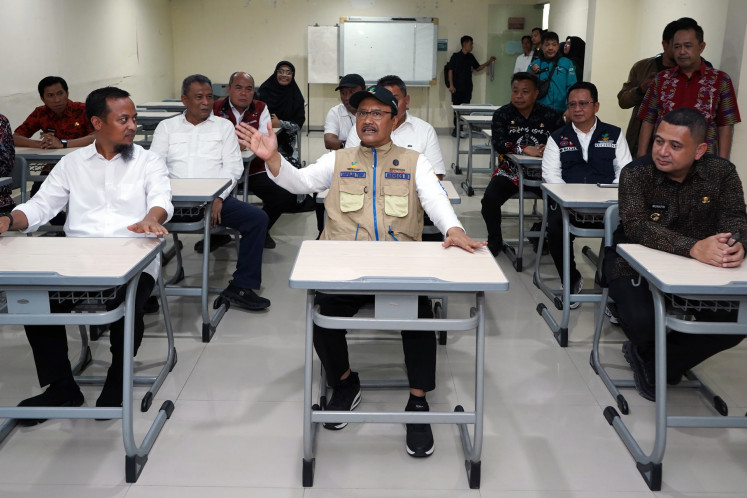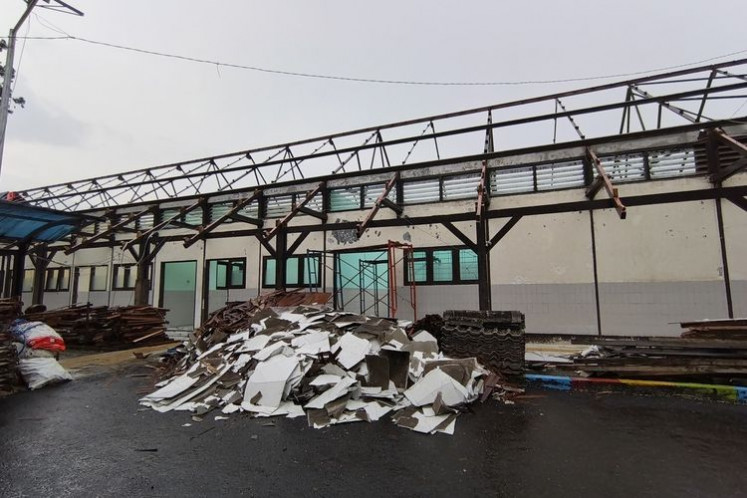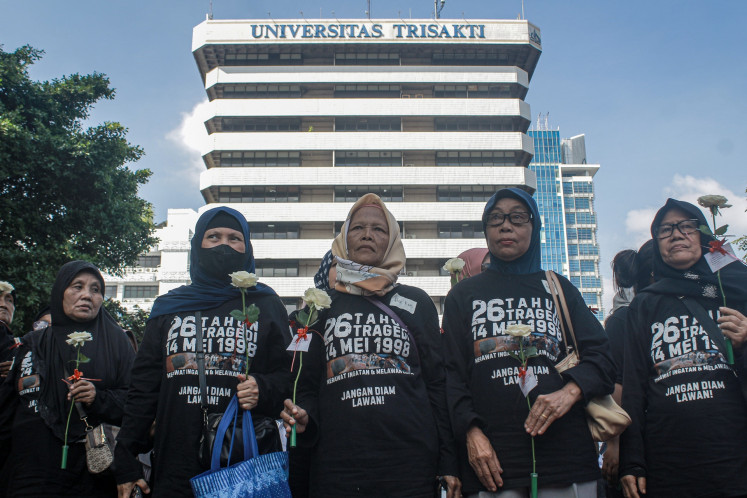Rainwater can be alternative water supply
Harvesting rainwater for domestic use can provide an alternative supply of water for residents of Jakarta’s low-cost apartments (rusun)
Change text size
Gift Premium Articles
to Anyone

H
arvesting rainwater for domestic use can provide an alternative supply of water for residents of Jakarta’s low-cost apartments (rusun).
Rusun residents have long complained about access to water, citing the poor quality of water supplied by water companies.
Two rainwater harvesting (RWH) facilities have recently been installed at Muara Baru Rusun in Penjaringan, North Jakarta, with assistance from Atma Jaya Catholic University (Unika Atma Jaya) and the Coca-Cola Foundation Indonesia, which have a combined capacity of up to 336,000 liters.
The RWH-treated water is mixed with the water supplied by PT PAM Lyonnaise Jaya (Palyja) and distributed to 390 families living in apartment blocks 5, 6 and 7 of Muara Baru, in addition to the tap water supplied by Palyja.
The head of Muara Baru’s RWH management team, Subandi, told The Jakarta Post recently that the mixture would help the families lower their utility bills because the RWH-treated water is distributed free of charge.
Subandi said five members of his team were responsible for the maintenance of the RWH facilities under a contract agreement with the apartments’ management.
Unika Atma Jaya deputy rector for cooperation, research and strategic planning Elisabeth Rukmini said treated rainwater offers great benefits for families and might motivate other apartment buildings to develop similar facilities for its tenants.
“For example, the use of treated rainwater can help families in Muara Baru lower their tap water bills significantly,” she said, adding that the money saved could be used for other purposes such as education.
She expected that rainwater harvesting techniques could be implemented at other low-cost apartment buildings.
“We have designed the facilities in such a way that they can be easily copied. We will be happy if others copy it,” she said.
Coca-Cola Foundation Indonesia operational head Titie Sadarini said rainwater harvesting was one of the programs the foundation developed to promote water conservation in big cities.
“Coca-Cola’s business depends on water, so facilitating access to water for the community is our responsibility,” she said.
“We have tested rainwater harvesting in residential areas to help residents access additional sources of water,” she said, adding that the trial at Muara Baru was a success story that the Jakarta administration could replicate in other locations.
The Jakarta Public Housing and Settlement Agency’s technical planning unit head, Kelik Indriyanto, said city-owned low-cost apartments generally use groundwater when supplies from water companies were
inadequate.
“However, in the future we will try to harvest rainwater to reduce costs,” he said.
He added that the administration was developing environmentally friendly rusun, such as its low-cost apartment project in Daan Mogot, West Jakarta.
The Daan Mogot Rusun, which has eight towers with seven more under construction, comprising a total of 1,700 apartments, is expected to be certified by the Green Building Council Indonesia.
He added that the seven Daan Mogot Rusun towers would be equipped with water circulation installations, so that waste water can be reused, such as for flushing or watering plants. (ami)









